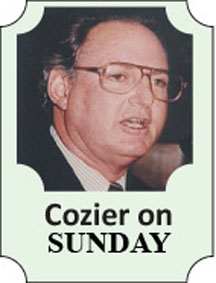IT IS a formula for T20 cricket ideally suited to their game.
As they have done since the International Cricket Council (ICC) added the shortest version of the game to its list of Cup tournaments, in South Africa in 2007, the West Indies again rely in today’s final of the fifth World T20 on audacious boundary-hitting batsmen supported, not so much by fast bowling on which their once exceptional record in Tests  and One-Day Internationals was built, but now by stingy spinners.
and One-Day Internationals was built, but now by stingy spinners.
Their motivation is boosted by a few factors, quite apart from the $1.5 million winner’s cheque.
It is almost certainly the last appearance in the West Indies’ maroon colours of those who commit themselves to global domestic franchise leagues. Their captain Darren Sammy said his team had come to India ‘on a mission’. Referring to the habitual contracts dispute with the West Indies Cricket Board (WICB) leading into the tournament, Sammy said the players are inspired by the feeling that it is them and the coaching staff ‘against everybody else’.
He spoke of the inspiration they took from the under-19s in winning their World Cup for the first time in Bangladesh in January and the appearance of the women’s team in their first final, a few hours earlier, breaking the previous Australia-England-New Zealand axis.
It all ‘means a lot to Caribbean people’ whose previous passion for the game has faded as their once invincible team has plunged to lower rungs of the ICC rankings in the longer versions.
Incentive is a strong positive aspect in any sport; it alone does not guarantee success. The team that plays the
